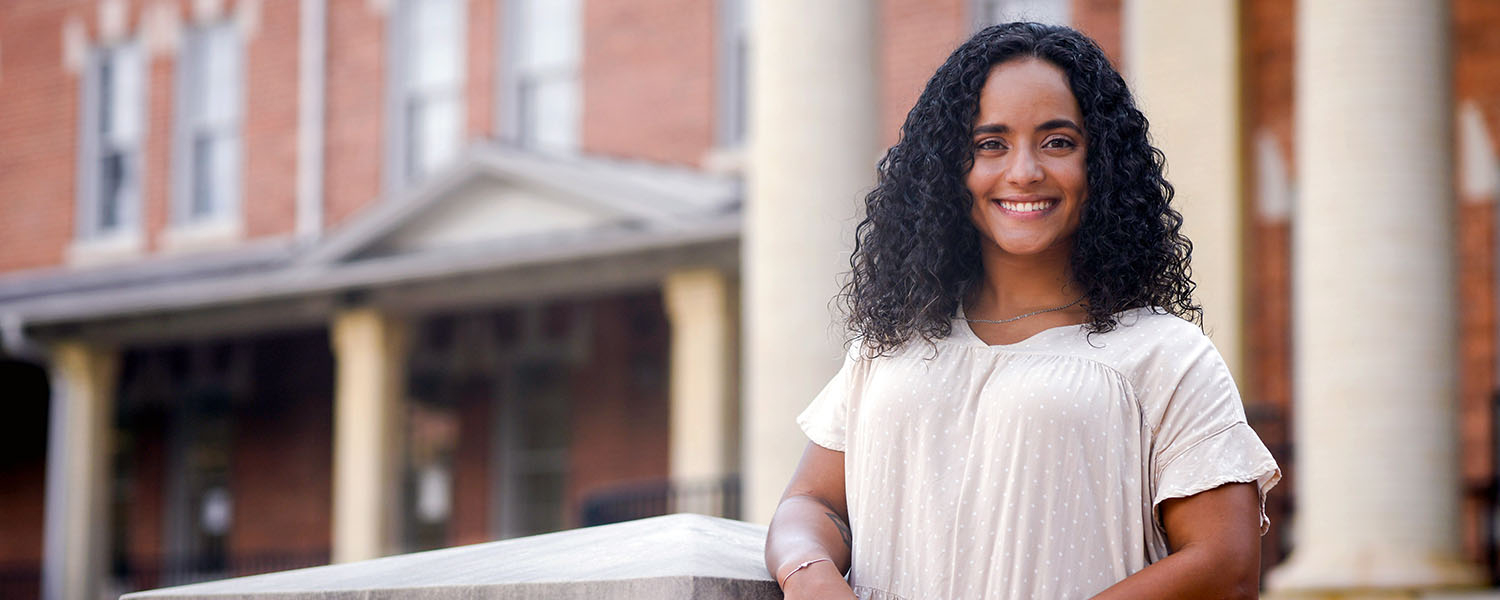
MALS Provides a Path for Wolfpack Gymnast
NC State gymnast Drew Grantham found a way to integrate her interests in athletics, organizational development and inclusion through NC State’s Master of Arts in Liberal Studies program.
Drew Grantham was just four weeks from completing her career as an NC State gymnast in March when she received word that the university was moving all classes online. She had just participated in her senior night in Reynolds Coliseum, and although it was spring break, she was still on campus for team practices.
“I remember my last practice, looking back and thinking, ‘I’ll never do those skills again,’” Grantham said.
But while Grantham’s gymnastics career was cut short four weeks early, she already had a plan for the future that included a degree from NC State’s Master of Arts in Liberal Studies program. In addition, she has support from two prestigious Graduate School fellowships that support former varsity athletes in their quest for a graduate degree – the Jerry J. Collier Fellowship and the Steve and Jane Warren-Wolfpack Club Graduate Fellowship.
She was attracted to MALS because the program offered an Accelerated Bachelor’s to Master’s option, so she could begin her master’s program while she was still an undergraduate. With the head start that ABM provided, she hopes to finish her MALS program in spring 2021.
Grantham said that the flexibility that MALS offered also appealed to her. The MALS program allows students to create a course of study based on their personal or career interests. She plans to focus on organizational behavior related to athletics.
Becoming a collegiate gymnast apparently was always in the cards for Grantham. She started gymnastics classes when she was 18 months old, and by age 6, she was already competing. At 7, she started attending summer gymnastics camp at NC State, and she committed to joining the Wolfpack’s gymnastics team when she was a high school sophomore.
“It just always seemed like NC State was a place where I went to camp, not a possible future school,” she said. “But when I started going through the recruitment process and visiting schools, I realized that NC State felt like home. And I always felt comfortable there, which was something that was important to me.”
Grantham said the transition from high school student and club gymnast to collegiate athlete and communications major was easy for her. “Juggling and time management wasn’t hard for me, so the transition went smoothly,” she said.
She had a wonderful relationship with Coach Kim Landrus and her teammates. “She’s (Landrus) my coach, she’s my mentor, she’s also my friend,” Grantham said. “She’s been that person I could rely on for personal things, and she’s always my biggest cheerleader.”
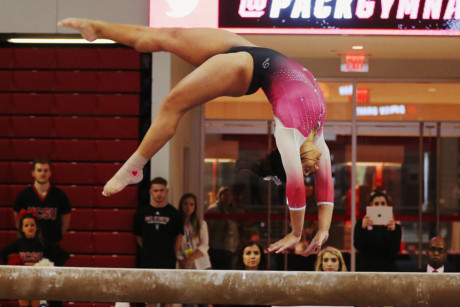
Grantham competed all four years of her undergrad career without injury and acquired many athletic accolades: The team won a conference championship her sophomore year, and Grantham won an individual event as well. Grantham has an all-around score that places her in the top 10 at NC State for all time.
Her senior year, she placed 23rd in the nation on the floor exercise, when she achieved a run of scores above 9.9 out of 10. She was the EAGL conference’s senior athlete of the year and received the Pack Pride Award from NC State Athletic Director Boo Corrigan.
And in addition to her two Graduate School fellowships, in May she learned that she would receive a $10,000 fellowship from the Carolina Panthers, virtually guaranteeing that fellowships will pay for her master’s program.
“It wasn’t just me that made those accolades; it was everyone from my athletic trainers to my coaches to my teammates that helped me get there,” she said.
In her role as a student athlete, Grantham was a member – and president her senior year — of the Student-Athlete Advisory Committee (SAAC). In her role on the committee, she worked with Tonya Washington, associate athletic director for student athlete engagement.
As a multi-racial woman – her father is white and her mother is bi-racial — Grantham began to feel a sense of isolation in gymnastics, a sport that remains predominantly white. It bothered her at times that white teammates would compliment her on “having a good tan,” and she didn’t know how to respond.
I felt like lots of people didn’t see me as a Black woman. For teammates, I didn’t check that box as a ‘Black girl.’
“Just due to the financial strains of gymnastics and socioeconomic status characteristically throughout the United States, gymnastics is primarily a white sport. That’s changing, and it has been changing throughout the years. But you don’t really see (diversity) as much yet at the collegiate level,” Grantham said.
So she talked with Washington about creating groups where student athletes could find their community, and for her, that meant a group for female athletes of color. When she expressed her sense of isolation to a teammate, she found that others like herself felt isolated too and longed for a community of people with similar backgrounds.
Washington encouraged Grantham to create a survey for other athletes to find out what community groups they would identify with. A group for women of color was among the suggestions. “One was a man-of-color group, one was focused on the LGBTQ-plus community, one was for student athletes who are recovering from significant injuries. There were just a bunch of different groups that didn’t even mean to be so much as support groups, but community groups that helped you feel like you belong, more than just to your team,” she said.
For her project as president of the SAAC, she started Girls Night In, a group for female athletes of color. “So a sports psychologist would facilitate conversations, and we focused on everything from team relationships to personal relationships and everything in between,” she said. “It was just nice to reach out into a part of the community and interact with girls that I would have never interacted with before that.”
Following the murder of George Floyd and the Black Lives Matter protests that followed over the summer, Grantham said she felt sad. “For the Black community, and some members of the white community, this wasn’t new. It was like stabbing a knife into an open wound. When is enough enough?” she asked.
Not a natural protester, Grantham didn’t participate in protests in her hometown of Durham, though she supports those who did. But she has thought a lot about having difficult conversations about race – taking on those teammates who didn’t recognize her as a Black, despite commenting on her “good tan.”
“I felt like lots of people didn’t see me as a Black woman. For teammates, I didn’t check that box as a ‘Black girl,’” she said. “I didn’t know how to have that conversation, and I let that pass for most of my years as a student.”
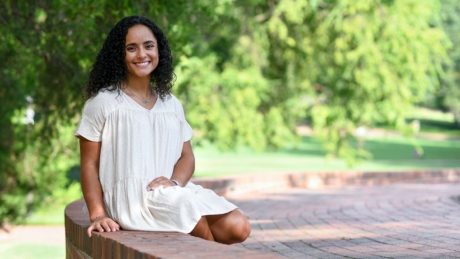
Grantham sees athletics as a “blueprint for life,” and it’s an area that she wants to explore through her MALS program: organizational behavior and communications.
“How is it best to be a leader? How is it best to be a listener?” she asked. “How do you encourage people to adopt that change, and how do you work with people who are change resistant? These are all the things that I’m doing, and I’ve been learning about.”
As an athlete, she was a member of different layers of organizations – her team, the athletics department and NC State University. And her roles, responsibilities and interactions were different in each organization. Now, she thinks she might want to share her personal experiences by focusing on racial disparities in organizations, especially athletics. She’s beginning to see where she wants to be in 10 years.
“I would like to take all my experiences to create the best structure for athletes, top to bottom – the right and healthy environment,” she said.
For now, she’s focused on her graduate classes and thinking about what she wants to do for her MALS final project. It’s a clear path to the future.
“What’s really exciting is even as I am doing the program now, I’m seeing how applicable it will be to so many different areas,” she said. “I wanted to do something that I could take with me no matter where I went.”

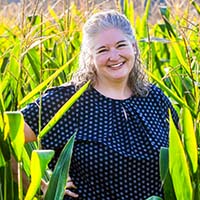
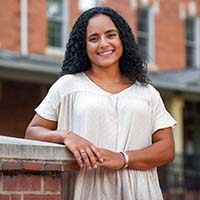
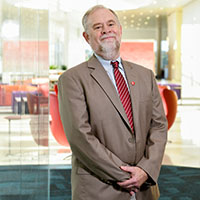
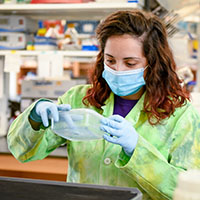
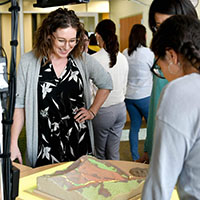
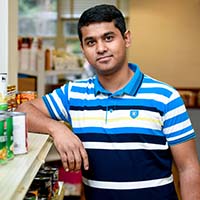
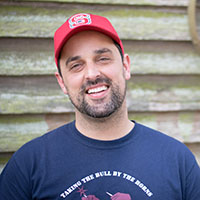
View Comments 0